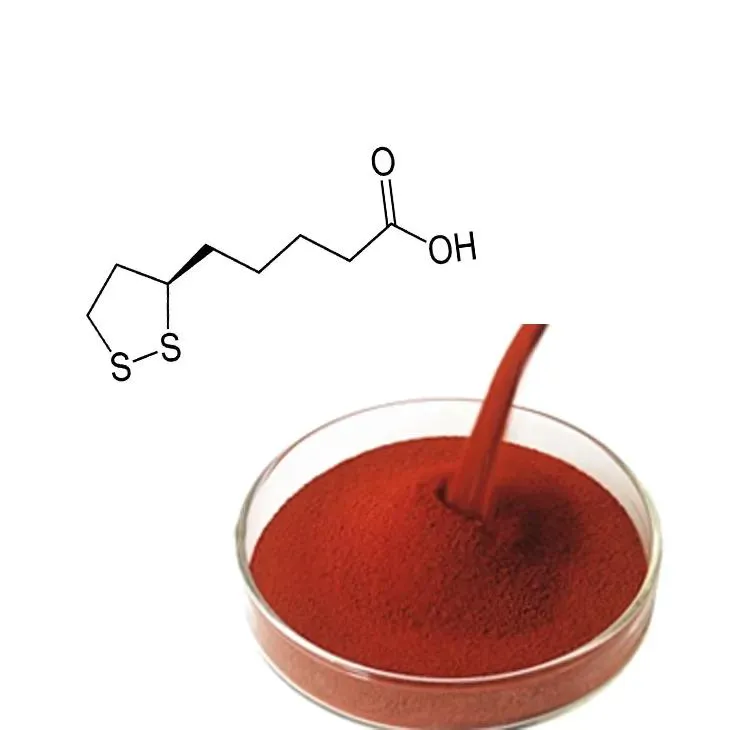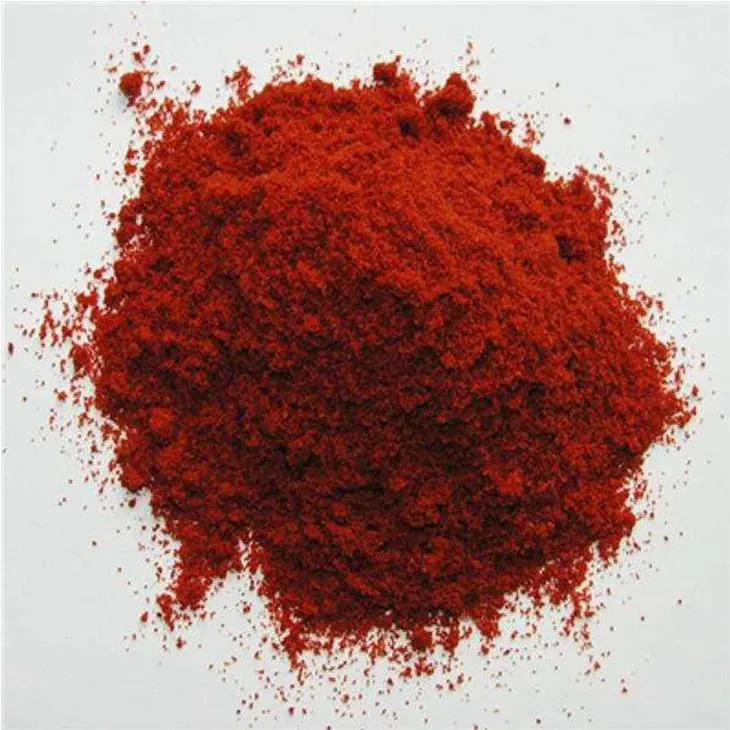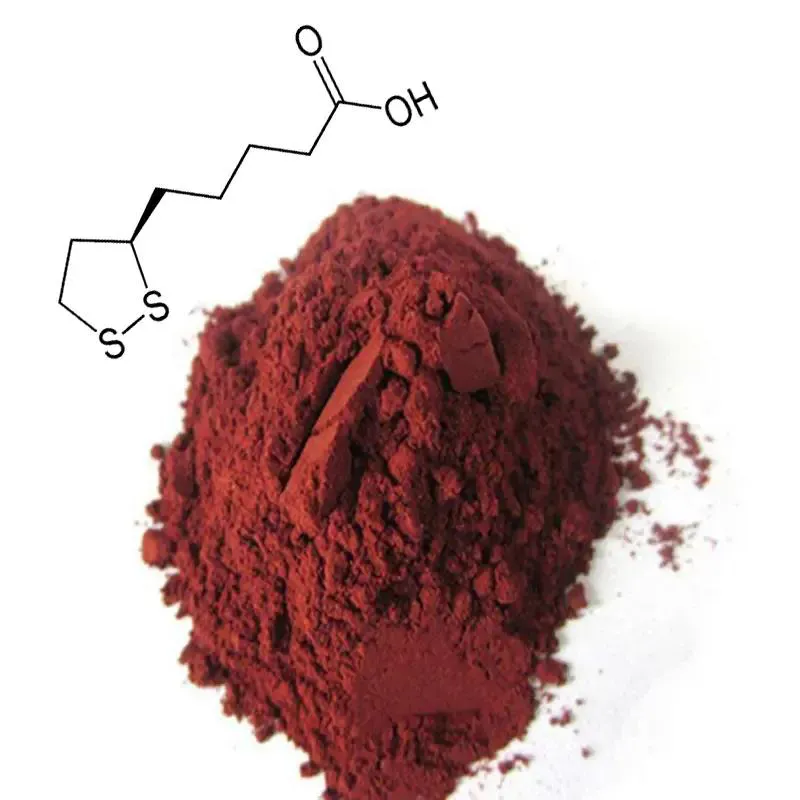- 0086-571-85302990
- sales@greenskybio.com
Astaxanthin Manufacturers from China.
2024-12-01

Introduction to Astaxanthin
Astaxanthin is a powerful antioxidant with numerous potential health benefits. It is a carotenoid pigment that is naturally found in certain marine organisms such as microalgae, salmon, trout, and krill. Due to its unique chemical structure, Astaxanthin has a high antioxidant capacity, which is much stronger than many other well - known antioxidants like vitamin C and vitamin E. This antioxidant property makes it a highly sought - after ingredient in various industries, especially in the health and beauty sectors.

Growth of Astaxanthin Production in China
In recent years, China has emerged as a significant player in the global astaxanthin market. The production of astaxanthin in China has witnessed remarkable growth. There are several factors contributing to this growth. Firstly, the increasing awareness of the health benefits of astaxanthin both domestically and globally has led to a rising demand. Chinese manufacturers have recognized this opportunity and have been quick to expand their production capabilities.
Secondly, China has a large - scale infrastructure and a favorable business environment for the development of the astaxanthin industry. The government has also been supportive through policies that encourage research, development, and production in the biotechnology and nutraceutical sectors, which includes astaxanthin production.

Advanced Facilities and Skilled Workforce
Chinese astaxanthin manufacturers are equipped with state - of - - the - art facilities. These facilities are designed to ensure high - quality production at every stage of the astaxanthin manufacturing process. From advanced bioreactors for microalgae cultivation to sophisticated extraction and purification equipment, Chinese manufacturers are investing in the best technology available.
In addition to the top - notch facilities, China also has a highly skilled workforce. There are many trained professionals in the fields of biotechnology, microbiology, and chemical engineering who are involved in astaxanthin production. These experts are able to operate the complex machinery, conduct research, and ensure that the production processes are efficient and compliant with international quality standards.

Production Process of Astaxanthin in China
Strain Selection
The production of astaxanthin in China starts with the careful selection of suitable strains of microalgae or other sources. Different strains may have different astaxanthin - producing capabilities and qualities. Manufacturers conduct extensive research to identify the strains that can produce high - quality astaxanthin in large quantities. For example, some microalgae strains are known for their high astaxanthin content and are therefore preferred for commercial production.
Cultivation Techniques
Once the appropriate strains are selected, precise cultivation techniques are employed. Microalgae are typically cultivated in controlled environments such as bioreactors or ponds. These cultivation environments need to be carefully monitored and regulated in terms of factors like temperature, light intensity, nutrient supply, and pH levels. Chinese manufacturers have developed advanced cultivation methods to optimize the growth of microalgae and maximize astaxanthin production. For instance, they may use a combination of artificial light sources and nutrient - rich media to ensure the healthy growth of microalgae.
Extraction and Purification
After the microalgae have reached the appropriate growth stage, the astaxanthin needs to be extracted and purified. This is a crucial step in obtaining pure and potent astaxanthin. Chinese manufacturers use a variety of extraction methods, including solvent extraction, supercritical fluid extraction, and enzymatic extraction. Each method has its own advantages and is chosen based on factors such as cost, efficiency, and the quality of the final product. Once extracted, the astaxanthin undergoes further purification processes to remove any impurities and to ensure a high - purity product.
Research and Development in China
Chinese astaxanthin manufacturers are not only focused on production but also on research and development (R&D). They invest a significant amount of resources in exploring new applications of astaxanthin. This R&D effort is crucial for staying competitive in the global market and for expanding the use of astaxanthin in different industries.
Health Supplements
One of the main areas of research is in the field of health supplements. Astaxanthin from Chinese manufacturers is being studied for its potential anti - aging and anti - inflammatory properties. Anti - aging research has shown that astaxanthin may help protect the skin from damage caused by ultraviolet (UV) radiation, reduce wrinkles, and improve skin elasticity. In terms of anti - inflammatory properties, studies suggest that astaxanthin may be effective in reducing inflammation in the body, which is associated with various chronic diseases such as arthritis and cardiovascular diseases.
Other Potential Applications
In addition to health supplements, Chinese manufacturers are also exploring other potential applications of astaxanthin. For example, in the food industry, astaxanthin can be used as a natural colorant in products such as fish feed, which can enhance the color of farm - raised fish to make them more appealing to consumers. There is also research being conducted on its potential use in the cosmetic industry for products like creams and lotions, as well as in the pharmaceutical industry for drug development.
Cost - Advantage and Global Competitiveness
China's large - scale production capabilities give it a significant cost - advantage in the global astaxanthin market. Compared to some other producers in developed countries, Chinese manufacturers can produce astaxanthin at a relatively lower cost. This is due to several factors. Firstly, the large - scale production allows for economies of scale, which means that the cost per unit of production decreases as the volume of production increases.
Secondly, the availability of raw materials and relatively lower labor costs in China also contribute to the cost - advantage. This cost - advantage has enabled Chinese - made astaxanthin products to be more competitive in the international market, leading to an increasing number of international partnerships and exports.
Many international companies are now partnering with Chinese astaxanthin manufacturers to source high - quality astaxanthin at a lower cost. Chinese - made astaxanthin products are being exported to various countries around the world, including the United States, Europe, and Asia - Pacific regions, to meet the growing global demand.
Conclusion
In conclusion, Chinese astaxanthin manufacturers have made great strides in recent years. With their advanced facilities, skilled workforce, efficient production processes, and focus on research and development, they are making their mark on the global stage. The cost - advantage further enhances their competitiveness in the international market, leading to increased exports and international partnerships. As the global demand for astaxanthin continues to grow, Chinese manufacturers are well - positioned to play an even more significant role in the future of the astaxanthin industry.
FAQ:
What are the advantages of Chinese astaxanthin manufacturers?
Chinese astaxanthin manufacturers have several advantages. They are equipped with state - of - the - art facilities and a highly skilled workforce. China also has large - scale production capabilities, which enable it to meet the growing global demand at a relatively lower cost compared to some other producers. Additionally, they invest in research and development to explore new applications of astaxanthin.
How is astaxanthin produced in China?
The production of astaxanthin in China involves multiple stages. It starts from the careful selection of suitable strains of microalgae or other sources. Then, through precise cultivation techniques, manufacturers are able to extract pure and potent astaxanthin.
What new applications of astaxanthin are Chinese manufacturers exploring?
Chinese manufacturers are exploring new applications of astaxanthin in the field of health supplements. For example, they are studying astaxanthin for its potential anti - aging and anti - inflammatory properties.
Why is Chinese - made astaxanthin competitive in the global market?
Chinese - made astaxanthin is competitive in the global market because of China's large - scale production capabilities that can meet the global demand at a relatively lower cost. Also, the product is pure and potent due to advanced production techniques starting from strain selection and precise cultivation.
Are there international partnerships for Chinese astaxanthin manufacturers?
Yes, there is an increasing number of international partnerships for Chinese astaxanthin manufacturers. China's ability to produce astaxanthin at a relatively lower cost while maintaining quality has led to more international cooperation and exports of their astaxanthin products.
Related literature
- Astaxanthin Production in China: Current State and Future Prospects"
- "Chinese Astaxanthin Manufacturers: Meeting Global Demands"
- "Advances in Astaxanthin Research by Chinese Manufacturers"
- ▶ Hesperidin
- ▶ Citrus Bioflavonoids
- ▶ Plant Extract
- ▶ lycopene
- ▶ Diosmin
- ▶ Grape seed extract
- ▶ Sea buckthorn Juice Powder
- ▶ Fruit Juice Powder
- ▶ Hops Extract
- ▶ Artichoke Extract
- ▶ Mushroom extract
- ▶ Astaxanthin
- ▶ Green Tea Extract
- ▶ Curcumin
- ▶ Horse Chestnut Extract
- ▶ Other Product
- ▶ Boswellia Serrata Extract
- ▶ Resveratrol
- ▶ Marigold Extract
- ▶ Grape Leaf Extract
- ▶ New Product
- ▶ Aminolevulinic acid
- ▶ Cranberry Extract
- ▶ Red Yeast Rice
- ▶ Red Wine Extract
-
Lily extract
2024-12-01
-
Ivy Extract
2024-12-01
-
Lycopene
2024-12-01
-
Nettle Root Extract
2024-12-01
-
Diosmin
2024-12-01
-
Stevia Extract
2024-12-01
-
Medicinal Marshmallow Extract
2024-12-01
-
Curcumin
2024-12-01
-
Eyebright Extract
2024-12-01
-
Sea buckthorn Juice Powder
2024-12-01





















